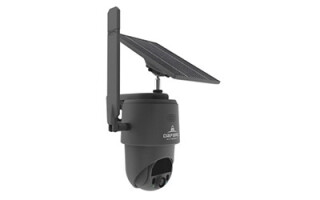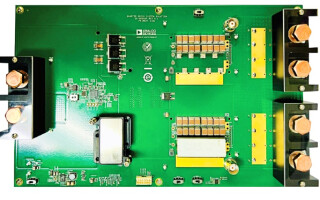Don't Swap SWaP for RF Bandwidth. Get Both with AMD Versal Adaptive SoCs
March 07, 2025
Sponsored Blog

In the world of radio frequency (RF) applications, you need flexible, precise, and fast signal analysis over the widest possible spectrum to ensure compliance and reliability, especially in radar, signal intelligence, and test & measurement applications.
Experts look to digital signal processing (DSP) to process these massive bandwidths. Programmable logic allows the developer to implement customized DSP implementations adapted to their specific use case. However, the amount of compute needed to efficiently process high channel counts at high sample rates, across a wide bandwidth, is enormous. With AMD Versal RF Series, AMD has taken this a step further, integrating hard IP that implements complex RF signal processing functions. This reduces programmable logic utilization and power consumption, while maximizing performance—providing a better balance between flexibility, power, and cost. This is of particular importance for applications that cannot afford to sacrifice performance for size, weight, and power (SWaP).
Many of the key applications for the Versal RF Series are found in the aerospace & defense, communications, and test & measurement markets. These applications include phased array radar, MILCOM, and Electromagnetic Spectrum Operations (EMSO), and extend to small form factor platforms, like 3U VPX, for signals intelligence, electronic warfare, radar, and cognitive radio.
In the test & measurement market, key applications include wideband spectrum analysis, high-speed oscilloscopes, and high-speed RF testers that need multiple RF channels.
Processing requirements continually increase, and RF systems and applications are no exception. Supporting wider RF bandwidths at higher sample rates simply requires more compute. Furthermore, this insatiable demand for computational performance is growing faster than sample rates. The reality is that increasing bandwidth and sample rates are driving demand for more DSP, no matter what the application.
Today’s RF data converters can digitize more RF bandwidth than most processing devices can handle, making multi-chip digital processing a necessity, which in turn impacts size, weight, power and latency. Today’s systems need massive DSP compute, with low latency, at the RF edge. In these applications, developers are increasingly challenged to meet aggressive system-level requirements.
Modern and future RF systems require:
- high frequency range of operation
- high sample rates
- wide instantaneous bandwidth
- high data converter resolution
- high channel density
- smallest size and lowest power consumption
- flexible hardware to future proof and scale
- robustness of multiple end-applications in the noisiest environments
The AMD Versal RF Series adaptive SoC is one solution to help the RF designers accomplish everything that’s being asked of them, both for today and moving forward. The Versal RF Series integrates next-generation direct RF data converters and hard IP blocks for commonly used DSP functions like FFTs and channelizers to solve all the above challenges.
AMD says the Versal RF-ADCs and RF-DACs offer resolutions of 14-bit (with calibration), support up to 32 GSPS ADC sample rates, up to 16 GSPS DAC sample rates, and up to 18 GHz of input/output bandwidth at -3 dB. New signal processing hard IP in the Versal RF devices, when paired with the integrated AI Engines and programmable logic, can provide DSP processing in excess of 19X the TOPS of the previous generation, delivering up to 80 TOPS.
The Versal RF Series is also optimized for SWaP requirements because its hard IP blocks reduce power consumption by up to 80 percent compared to the same soft IP implementation. Finally, with the Versal RF Series, JESD204 interfaces to external ADC/DAC are not required because Versal RF device keeps everything on chip.
“You can get a lot more processing power and features in one device,” said David Brubaker, Senior Product Line Manager, Adaptive & Embedded Computing Group, AMD. “A single AMD Versal RF VR1652 device offers the combined processing capabilities of four Virtex UltraScale+ VU13P devices, one Versal AI Core Series VC1702 device, and one discrete RF converter.”
And that’s the crux of it. If your goal is to build the most performant and energy efficient direct-RF product on the market, the AMD Versal RF Series is the right place to start.
For all the details on AMD Versal RF adaptive SoCs, click here.





